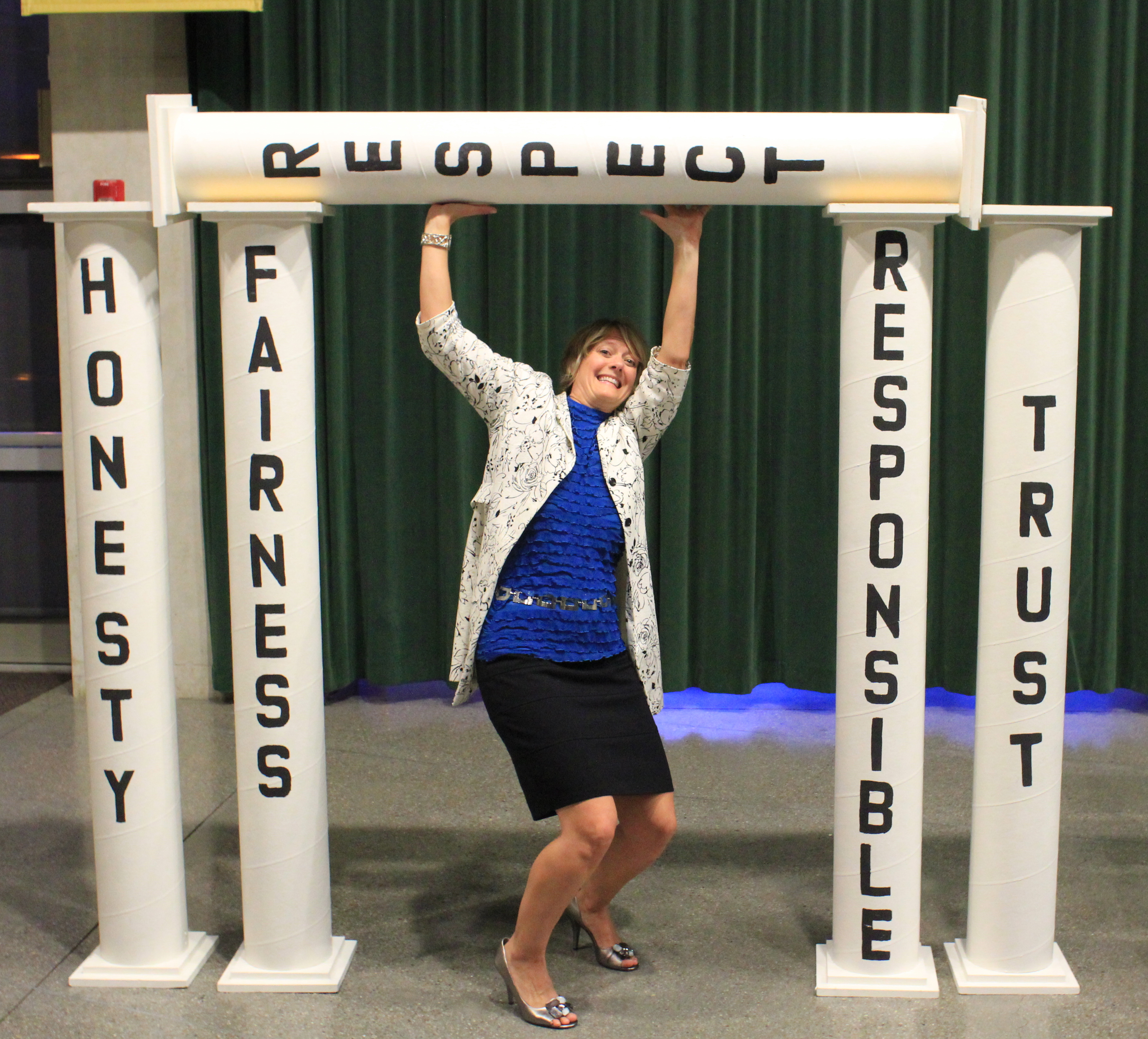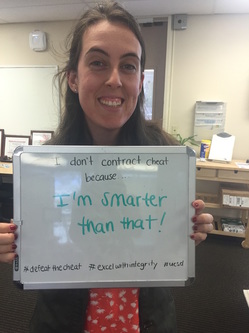“We need a hero!” How Contract Cheating Works
Published by: WCET | 10/5/2016
Published by: WCET | 10/5/2016
“We need a hero!” is a recurring subject line in emails I receive from a popular contract cheating provider. In these emails, they beg me to become a “hero” by uploading my “study resources” to help others or by becoming a “tutor” to fulfill customer requests such as writing their “essay on relation between success and happiness” or completing for them “a basic rough draft for this topic”. This particular company pretends to help students “master” their classes, but a quick search of their site demonstrates that they are in the cheating business.
This is how such contract cheating providers operate. They make our students believe that if they engage with them, they are being kind and helpful because by “sharing and earning” they are providing “millions of study resources” and “homework help” to others in need. And, if they use the services, they are being smart, good students who will deliver what their professors want – a 10 page paper with 20 references by October 20th or a great performance on a final examination. Students may also believe that if they use these services, they will be able to deliver what their parents want (good grades) and what employers want (a degree).
The question for educational institutions is this – what is driving our students to contract cheating providers? The underlying reasons may be complex, shaped as they are by individual and situational factors, but perhaps at the heart of it, contract cheating providers deliver services that we do not—-“help” on their academic work 24 hours per day, 7 days a week. We know that our students often do not work on their assignments between 9-5, Monday-Friday, when our support services are available, so where else can they go for help.
Even if your institution does offer online services, 24-7, do your students know that and can they find them? We know that students Google to find things and when I When I Google “essay writing help”, the 7th hit is “strategies for essay writing” from Harvard’s Writing Center and the 25th hit is Purdue’s Owl site, but the rest of the hits are all possible contract cheating sites.
Here is an example of an ad your students would find in their “essay writing help” Google search:

And essay “help” is just the beginning. Many of these contract cheating companies or freelancers, will offer to take exams or entire courses for your students (whether online or in person):
The point is this – contract cheating providers exist, they exist to serve your students, and your students are using them. Brad Wolverton, in “The New Economy of Cheating” (Chronicle of Higher Education, August 28, 2016, subscription required), estimates that the annual revenue for one of the largest contract cheating providers is “in the millions”. The UK’s Quality Assurance Agency (QAA) “Plagiarism in Higher Education” (August 2016) report also posits that the industry is expansive, likely involving thousands of students every year.

So, should anything be done about contract cheating? Can anything be done?
The answer to both questions is a resounding yes!
First, we must do something about it. After all, this type of fraud perpetrated on the public, on employers, and on the government, could crash the knowledge economy. The knowledge economy is built on education credentials, specifically who has the grades and certifications needed to fill the jobs that fuel the economy. If these grades and certifications are fraudulent, the jobs are filled by incompetent people at best, and ethically challenged people at worst.
Survey studies have found that people who cheat in school are more likely to cheat at work, and since the rates of cheating are high (as high as 41% in some studies), that means that at least 41% of those being hired have cheated in school. And since less than 1% of students at most schools are reported for cheating, that means that at least 40% of new graduates being hired have learned that cheating is a strategy for success, perhaps even for “excellence”. It would be an interesting study to interview the recently fired Wells Fargo employees, and their managers, to find out if they cheated in school.
If students are taking grants and loans from the government to pay others to do their work for them, then our taxpayer dollars are being squandered. The federal government seems to be concerned about the financial aid fraud allegedly perpetrated by for-profit educational institutions and some Attorney Generals are concerned about the alleged fraud of Trump University. But where is the moral outrage about the fraud perpetrated by these contract cheating providers and the students who use them?
We must do something about it.
So, what do we do?
Here are some basic, good general recommendations for schools, colleges, and universities:
The above are overarching recommendations.

To learn more about contract cheating and what you can do about it, join the International Center for Academic Integrity (ICAI) as we host an International Day of Action Against Contract Cheating on October 19th, Carnegie’s Global Ethics Day.
On that day, we’ll release an Institutional Toolkit with more specific tips and ideas for preventing and detecting contract cheating. On that day, institutions around the world will educate their students and faculty about contract cheating, as well as participate in Whiteboard Declarations against contract cheating and share these declarations on social media using #defeatthecheat and #excelwithintegrity.
Our actions on October 19th won’t change the world, but they might wake it up.
We need a hero!
Go to http://contractcheating.weebly.com and tell us you’ll join us on the International Day of Action Against Contract Cheating.

Tricia Bertram Gallant, Ph.D.
Director, Academic Integrity Office
University of California, San Diego
Academic Integrity Office at UC San Diego